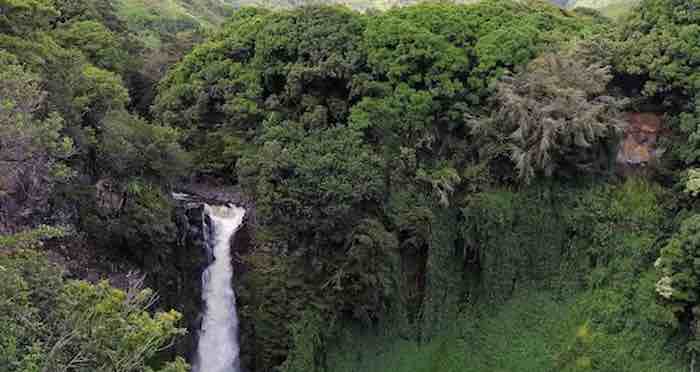By Dan Calabrese ——Bio and Archives--April 17, 2018
American Politics, News | CFP Comments | Reader Friendly | Subscribe | Email Us
 So let me get this straight: We could save taxpayers more than $1 million a year and all that will go wrong is that 200 “plant species” will die out in Hawaii?
I vote yes. Let’s do it.
Did you know we were spending taxpayer money on such things? If 200 plant species in Hawaii became “extinct” (we use that term in reference to plants?), how many people would actually notice, care, be negatively affected by it or otherwise find themselves in any way grappling with the catastrophic consequences of such a development?
So let me get this straight: We could save taxpayers more than $1 million a year and all that will go wrong is that 200 “plant species” will die out in Hawaii?
I vote yes. Let’s do it.
Did you know we were spending taxpayer money on such things? If 200 plant species in Hawaii became “extinct” (we use that term in reference to plants?), how many people would actually notice, care, be negatively affected by it or otherwise find themselves in any way grappling with the catastrophic consequences of such a development?President Trump’s budget cuts could doom nearly 200 Hawaiian plant species to rapid extinction, conservationists warn. “They’d be gone within five to ten years,” says botanist Joan M. Yoshioka. “Some within a year. Some would be extinct within a month.” As you might expect in a place often referred to as “the extinction capital of the world,” many of Hawaii’s plants are already critically endangered and depend on direct intervention actions for their long-term survival. “A lot of our species are so rare they’re down to one population that’s less than a quarter-acre in size,” says Yoshioka, statewide manager for Hawaii’s Plant Extinction Prevention Program. “Some are down to the last handfuls of individuals.”
All told 239 Hawaiian plant species now have populations of 50 or fewer individuals in the wild. The 11-member team of the Plant Extinction Prevention Program protects 190 of those species. Working on a shoestring budget of just $1.1 million a year, the team does whatever it can to save them, including collecting seeds and cuttings for propagation, replanting new populations in the wild, building and maintaining fences to block out invasive pigs and other herbivores, and even going so far as to help pollinate some species by hand. Their journeys often take them to the most remote areas of the island chain, including steep cliffs and places probably never before seen by other human eyes. They’ve discovered more than a dozen new species in the process. “Without the program there wouldn’t be any of those triage-type emergency actions,” Yoshioka says. “So the potential for one feral pig to destroy an entire species is a very real threat and one we experience every single day.”The program depends on the federal government for 70 percent of its funding, so if the State of Hawaii wanted to boost funding for the program, they could always choose to save it. This strikes me as the sort of thing we do because it feels good without any serious public benefit being attached to it. If nature, left to its own devices, would kill off these plant species, then why do we as humans need to intervene and stop that from happening? Nature surely creates as many plants as it destroys in a given period of time anyway, and I think we’re all going to be fine one way or the other. I realize this is a tiny expenditure as federal spending goes, and that the real money is in entitlements. Eliminating funding for “triage-type emergency actions” to save plants isn’t going to balance the federal budget. But it’s also true that you can never get your finances in order if you can’t say no to the things that obviously deserve a no. If Congress was serious about budgeting, it would look how necessary things like this are, and if they’re not, stop paying for them – regardless of whether the savings would be big, small or tiny. But it’s not, so it just keeps paying for everything, because it’s easier.
View Comments
Dan Calabrese’s column is distributed by HermanCain.com, which can be found at HermanCain
Follow all of Dan’s work, including his series of Christian spiritual warfare novels, by liking his page on Facebook.